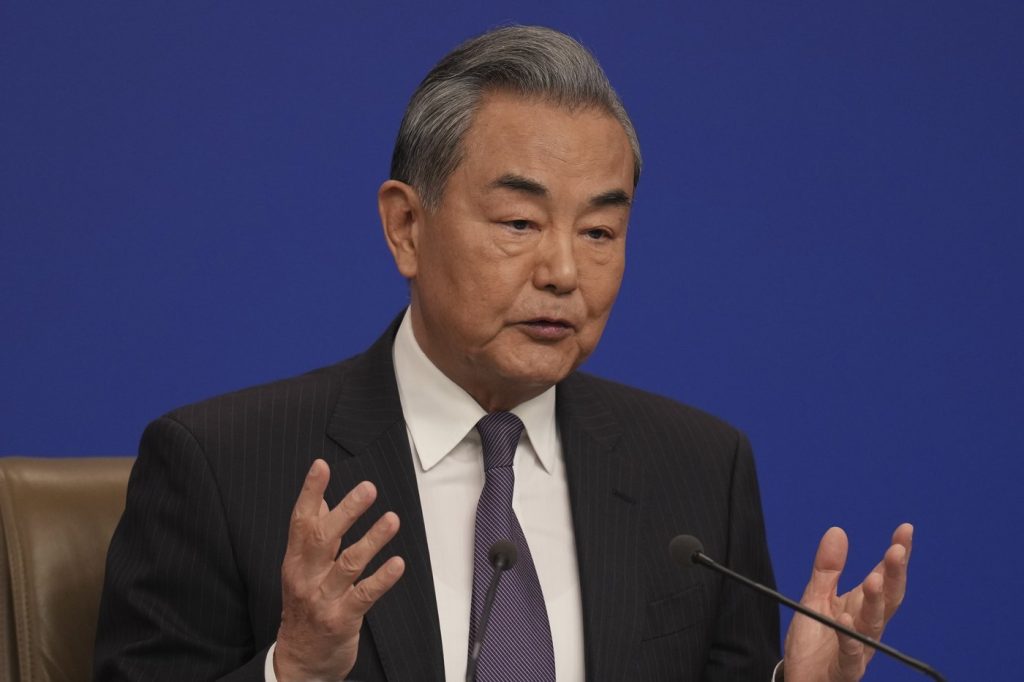BEIJING (AP) — During a press conference held on March 7, 2025, on the sidelines of China’s annual parliamentary session, Chinese Foreign Minister Wang Yi criticized the United States for its “arbitrary tariffs” and vowed that China would continue to retaliate against these measures. Wang asserted that the ongoing punitive tariffs imposed by Washington were exacerbating tensions between the two nations, particularly in light of China's efforts to assist the U.S. in addressing its fentanyl crisis.
Wang emphasized the impossibility of maintaining a positive relationship with China while simultaneously attempting to suppress its growth. He stated, “No country should fantasize that it can suppress China and maintain a good relationship with China at the same time.” He warned that such “two-faced acts” are detrimental to the stability of bilateral relations and hinder mutual trust.
Since the initiation of tit-for-tat tariffs following former President Donald Trump’s return to office in January, the U.S. has imposed a flat 20% tariff on all Chinese imports. In response, China has implemented additional 15% duties on U.S. goods including chicken, pork, soy, and beef, and has intensified regulatory controls on American companies operating within its borders.
Addressing the policy pursued by the Trump administration, which prioritized U.S. interests over international cooperation, Wang opined that if every country were to adopt a similar approach, it would lead to a “law of the jungle.” He cautioned that weaker nations would suffer the most, undermining the international order and established rules. “Major countries should undertake their international obligations and not seek to profit from and bully the weak,” he added.
On the topic of the ongoing war in Ukraine, Wang reiterated China’s position advocating for a resolution through political means. He reflected that the conflict could have been avoidable and stated, “All parties should learn something from the crisis,” highlighting that security should be mutual and no nation should compromise another's security for its own.
Despite recent U.S.-Russia consultations aimed at resolving the Ukraine conflict, Wang reaffirmed that China-Russia relations remain robust. He noted that Beijing and Moscow are organizing joint commemorations for the 80th anniversary of the end of World War II this year.
Wang also addressed the sensitive subject of Taiwan, asserting that the island has never been an independent country and will not be one in the future. He stated, “Advocating for Taiwan independence is splitting the country,” claiming that any support for Taiwanese independence interferes with China’s internal affairs and disrupts the stability of the Taiwan Strait. He warned that those who support Taiwan's independence are “playing with fire” and will ultimately harm themselves.
When questioned about former President Trump’s proposal regarding Gaza and resettling Palestinians in neighboring countries, Wang firmly stated that Gaza historically belongs to the Palestinians. He cautioned that any forced alteration of the territory’s status could incite further unrest. Wang reiterated China’s support for the peace plan put forth by Egypt and other Arab nations and underscored China's commitment to a two-state solution for Palestine and Israel.
Wang concluded by remarking on the recurring Israeli-Palestinian conflict, suggesting that the lack of a fully realized two-state solution continues to impede lasting peace. He stated, “The state of Israel has long been a reality, but the state of Palestine is still far beyond reach.”










